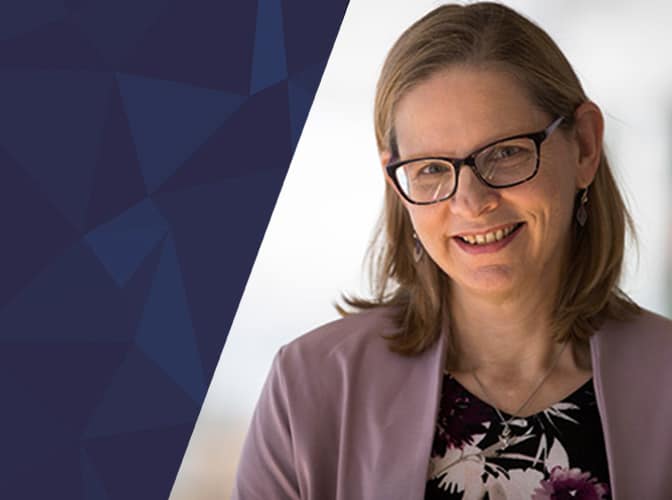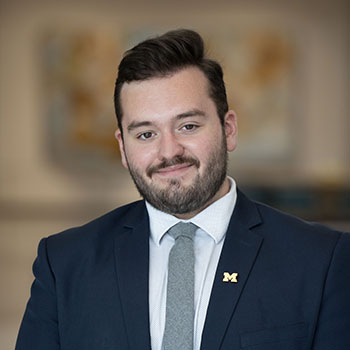
Nancy Love honored with national award for outstanding environmental engineering education and research
The American Academy of Environmental Engineers and Scientists recognizes Love’s achievements with the Science Award.

The American Academy of Environmental Engineers and Scientists recognizes Love’s achievements with the Science Award.
By James Lynch
The American Academy of Environmental Engineers and Scientists has recognized the work of University of Michigan Professor Nancy Love, presenting her with the professional society’s Science Award for 2020.
Love, the Borchardt and Glysson Collegiate professor of civil and environmental engineering, has been at U-M since 2008. Her research focuses on the intersection of water, infrastructure and public health.

AAEES’ Science Award is given annually for “outstanding” performance in the “management and implementation of environmental science programs” in the public or private sector, as well as demonstrating “exemplary professional conduct.”
“Dr. Nancy Love… is an outstanding environmental engineering educator and researcher, has made outstanding technical and administrative contributions, and is widely recognized as a leader in the field,” wrote David Dzombak, the Hamerschlag University Professor and head of Carnegie Mellon’s Department of Civil and Environmental Engineering, in his nomination statement. “She is a person of high integrity and a model professional. She is an outstanding leader.”
Love’s work has taken her as far from home as Ethiopia, and as close to home as Flint, Michigan. She focuses on advancing public and environmental health using chemical, biological and analytical approaches applied to water systems, and co-design methods in partnership with communities.
“I’m truly humbled,” Love said. “I’ve always valued the link between those of us in academia and those of us in practice, and I’ve tried to expose students to projects that require connection to those links and that involve nurturing the relationships they include.
“I see this Science Award from the AAEES as being a sign that the work I’ve been fortunate to do with so many collaborators (including front-line communities, utilities, consultants, governments, and those from within the university including students, other faculty and staff) is valued by the Academy and, increasingly, defines who we are as a profession.”
Love evaluates the fate of chemicals, pathogens and contaminants of emerging concern in water with relevance to public health and the environment; uses technologies to sense and remove these constituents; and advances technologies that recover useful resources from water.
Love has worked on a number of projects recently, including:

She has BS and MS degrees in Civil Engineering with an emphasis on Environmental Engineering from the University of Illinois, Urbana-Champaign, and a PhD degree in Environmental System Engineering from Clemson University. Dr. Love has also held leadership positions in multiple organizations, including with the Water Environment Federation (WEF), the International Water Association (IWA), and the Association of Environmental Engineering and Science Professors (AEESP).
AAEES is a non-profit organization supporting the Environmental Engineering and Environmental Sciences professions with training and certifications.The Science Award goes to “an individual who is an outstanding performer in the management and implementation of environmental science programs and projects conducted under either public or private auspices and has demonstrated exemplary professional conduct, had distinguished qualities of personal leadership, originality in devising new management techniques for dealing with environmental issues, and sensitivity and responsiveness to the impact of social and political influences on the conduct of environmental programs.”
“Unquestionably, Prof. Love is a pioneering environmental engineer undertaking high-impact research at the interface of water, infrastructure and public health,” said Jerry Lynch, the Professor and Donald Malloure Department chair for U-M’s Department of Civil and Environmental Engineering. “Furthermore, her work with local and global communities aiming to build local capacity for communities to tackle complex environmental issues affecting them is celebrated by this award.”
Love will receive the award on October 15, 2020 in the American Academy of Environmental Engineers & Scientists’ Virtual Award Ceremony and Conference.

Marketing Communications Specialist
Department of Civil and Environmental Engineering